 The ACLU of Rhode Island issued the following statement on the passage of Good Samaritan Legislation by the Rhode Island House:
The ACLU of Rhode Island issued the following statement on the passage of Good Samaritan Legislation by the Rhode Island House:
“We thank the House for moving to reinstate the Good Samaritan law. Today’s approval of this life-saving legislation puts the state on track to address drug use and addiction through treatment rather than criminal punishment.
“It is now critical that the House and Senate each promptly approve the opposite chamber’s identical version of this bill so it can be sent to the Governor and signed into law as soon as possible.
“The reinstated Good Samaritan law will save lives and reassure Rhode Islanders that their state values saving a life over making an arrest. We look forward to its speedy passage, and hope to work with lawmakers to expand its protections later this session.”
[From a press release]
]]>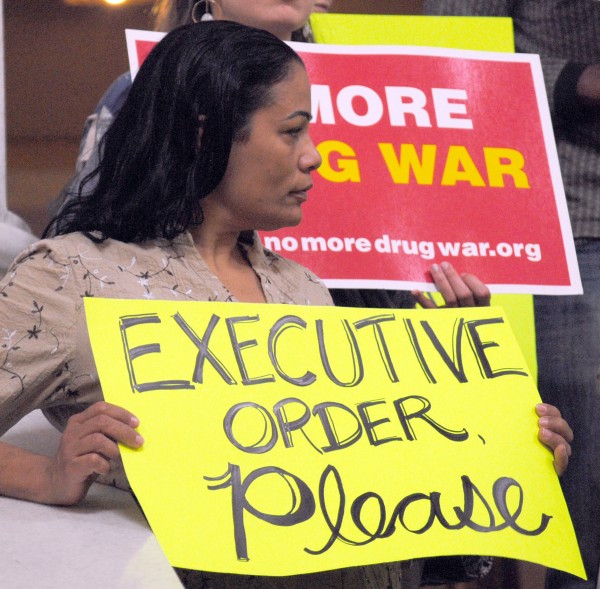 The General Assembly’s recess last Thursday has shown to have tumultuous effects, leaving several bills in legislative limbo. But, today at the State House, protestors made it known that for the Good Samaritan bill and those it seeks to save, anything is better than dying a preventable death.
The General Assembly’s recess last Thursday has shown to have tumultuous effects, leaving several bills in legislative limbo. But, today at the State House, protestors made it known that for the Good Samaritan bill and those it seeks to save, anything is better than dying a preventable death.
The Good Samaritan Overdose Prevention Act, put into law in 2012, has three sections that help to protect those who have experienced a drug overdose. The first allows someone to admit an “opioid antagonist” to the victim. This antagonist helps to reverse the effects of an overdose, and can save lives. A popular drug that has been used under the Good Samaritan law is called Naloxone, or Narcan.
The second prevents those who have overdosed from being charged with a crime. Before the law, it was possible that someone could overdose, and nobody would call 911 out of fear of legal repercussion. The Good Samaritan Act makes it safer for them to seek medical assistance. The third portion of the act dictates that the Attorney General’s office will release a report each year that outlines the effects of the act on law enforcement.

Originally, law had a three-year sunset provision on it. But, with the abrupt recess of this year’s legislative session, the Good Samaritan Act could not be renewed, and expired today, July 1. Supporters of the act gathered on Smith Hill today to voice their concerns for Rhode Island if the bill is indeed allowed to expire, including Governor Gina Raimondo.
“Drug overdose is the leading cause of accidental death in Rhode Island,” she said. “It’s a public health crisis and it’s time for greater action.”
Raimondo said that it is “unacceptable” that Rhode Island has the highest overdose rate in New England, and that everyone should be first and foremost focused on saving lives. Although there is not one solution, she said that the Good Samaritan Act is a step in the right direction for an “all hands on deck effort.”
“As a mother, with two little kids, I want my kids to be protected, and every kid to be protected,” she said.
Raimondo also expressed how discouraged she was with the General Assembly for simply letting the law pass them by this session, imploring that they “get to work.”
The theme of protecting families was a resounding one as supporters continued to speak, citing that nobody should fear calling 911 to save someone they love.
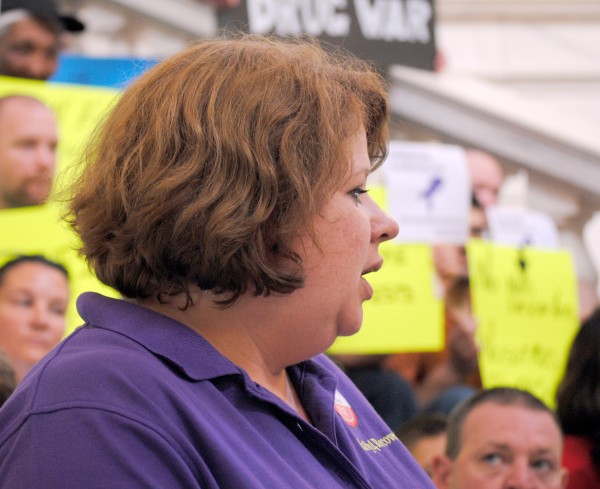
“We’re here today to address the need to protect families,” Holly Cekala, the executive director of Rhode Island Communities for Addiction Recovery Efforts, said. “All families have the right to protect their family members from any illness.”
Cekala said addicts can, and do, recover. The Good Samaritan Act will not only save an addict’s life, but put them on that path to recovery as well.
“We have a feeling that families matter. You can’t get to recovery if you’re not alive,” she said.
John Prince, an organizer for the Behind the Walls Prison Committee, as well as Direct Action for Rights and Equality, related that many in his community are on parole or probation, and that they will not call 911 if they have a police record, and especially if they know they can get arrested for it.
“The General Assembly is basically saying our lives don’t matter,” he said. “The governor needs to sign an executive order to protect all victims and save lives. They need to get this thing right to have protections for all men and women. And they need to do it now.”

Rebecca Nieves McGoldrick, the executive director of Protect Families First, put the blame on Attorney General Peter Kilmartin for the act’s expiration, along with the General Assembly.
“Their actions right now, speak louder than their words,” she said. McGoldrick added that for the opinions of Kilmartin to outweigh the Good Samaritan act’s support simply isn’t right.
“To have families suffer through the loss of a loved one so that the Attorney General could add another notch to his belt of drug arrests is frankly unconscionable,” she said.
Not all members of the General Assembly wanted to see this legislation die, though. Representative Aaron Regunberg (D- District 4), said that he would like to see the body reconvene and put the bill through as soon as possible. If that were to happen, Regunberg said that he would try to rally support for the act.
“I’m certainly going to be reaching out and making sure folks up there understand how urgent it is,” he said.
The odds of a special session in September are split right now. House leadership would like to reconvene at that time, but on the Senate side they don’t. Many have urged Governor Raimondo to issue an executive order, but her office has not indicated any such plans. Either way, supporters all agree that something, anything, must be done.
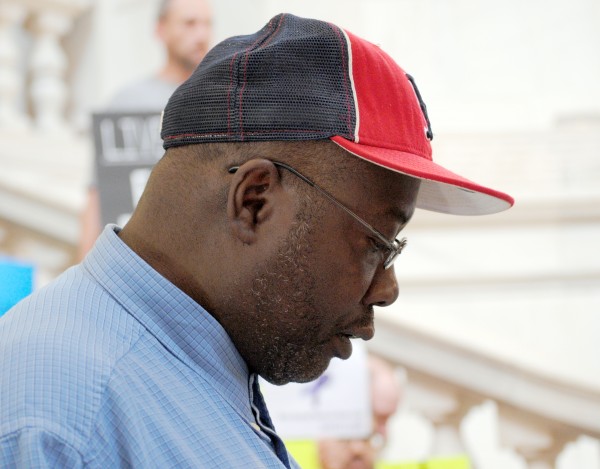

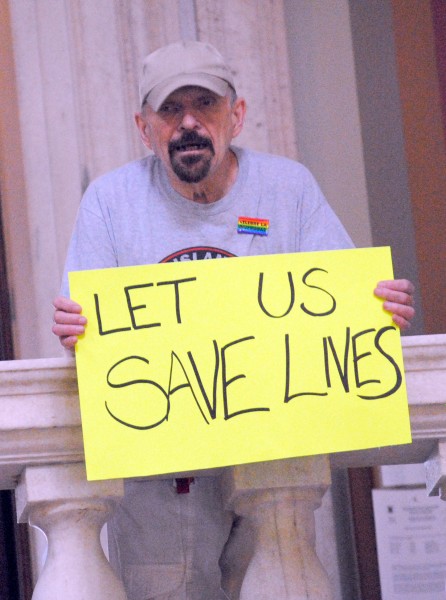
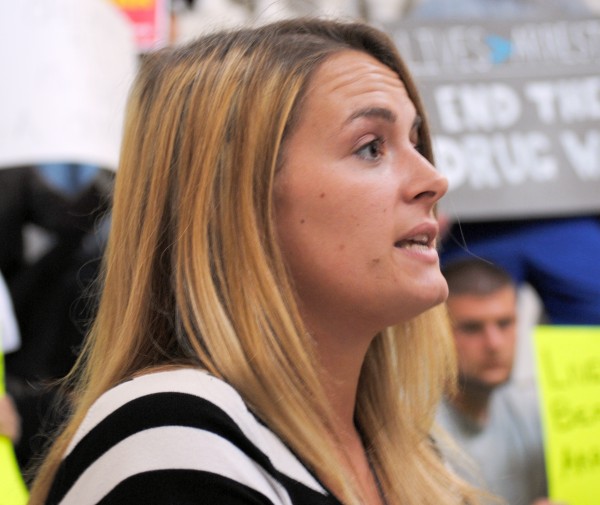
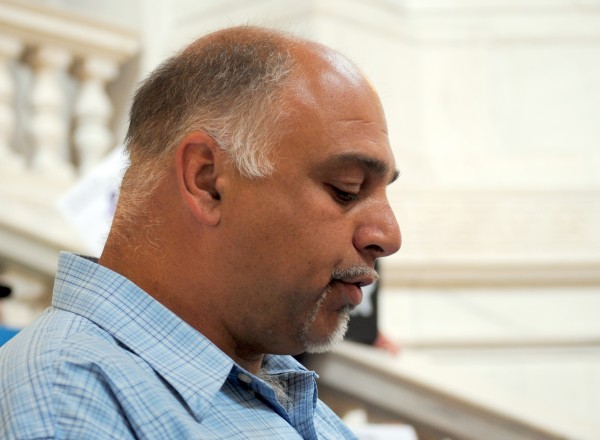
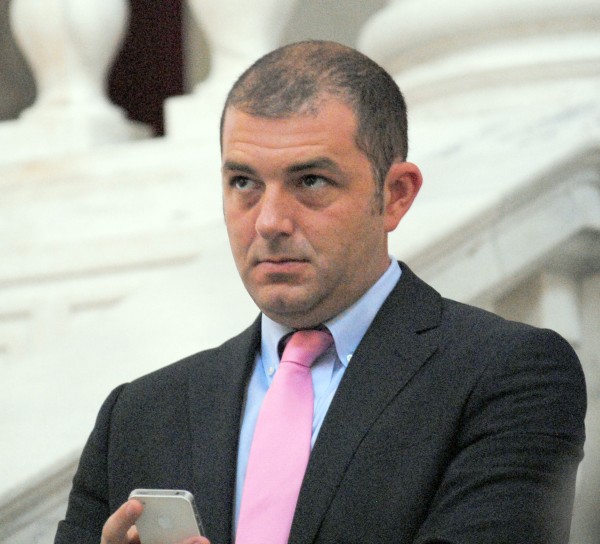
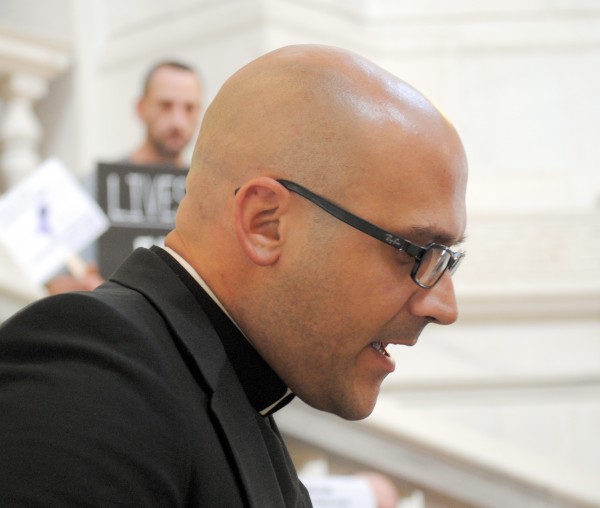
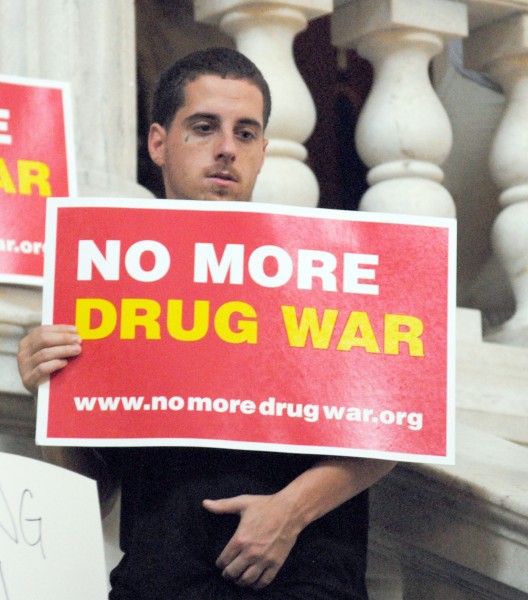
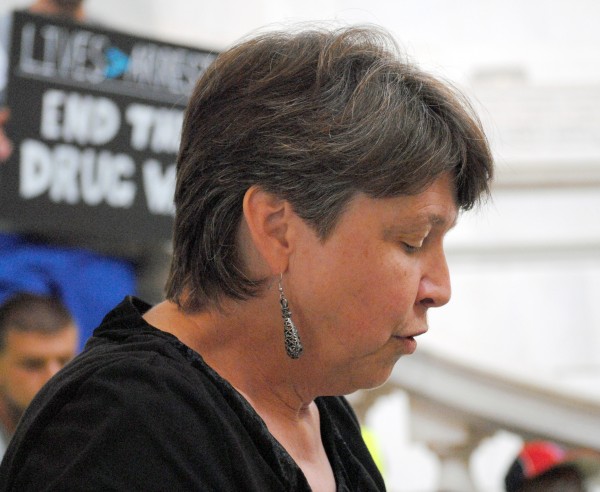
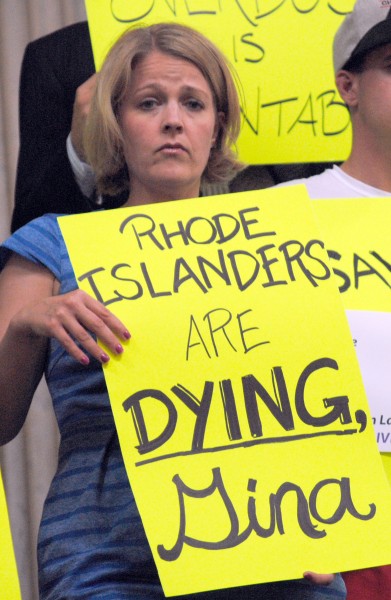
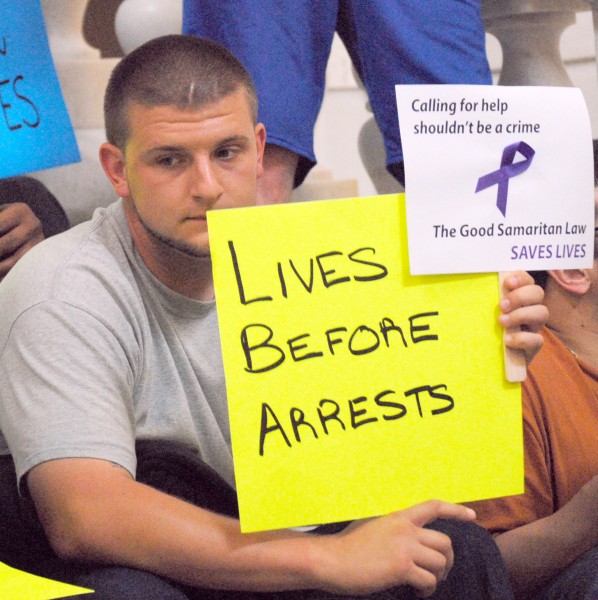
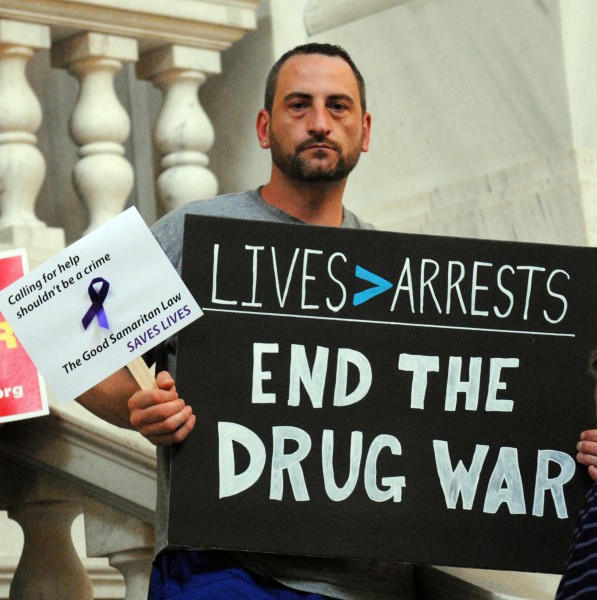
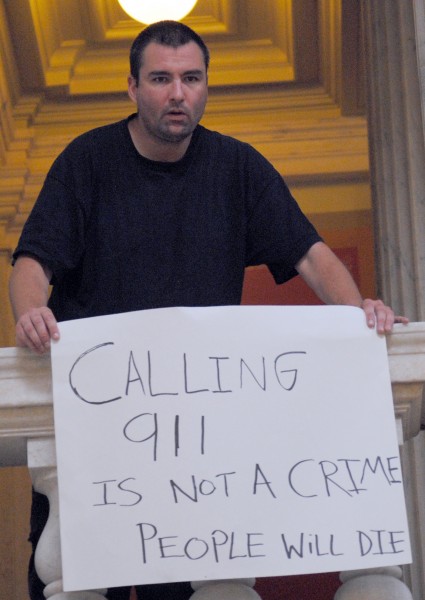
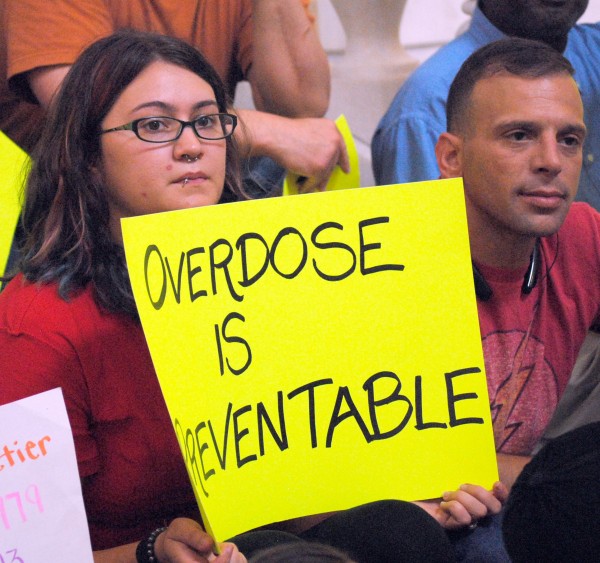
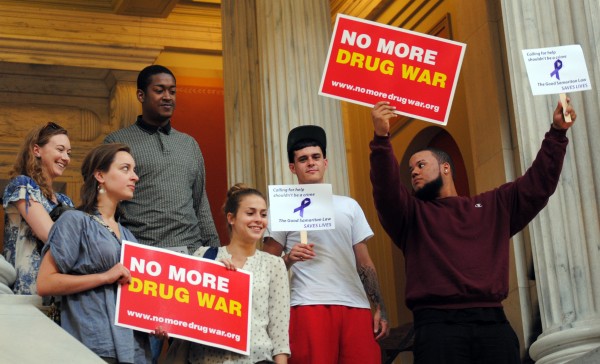

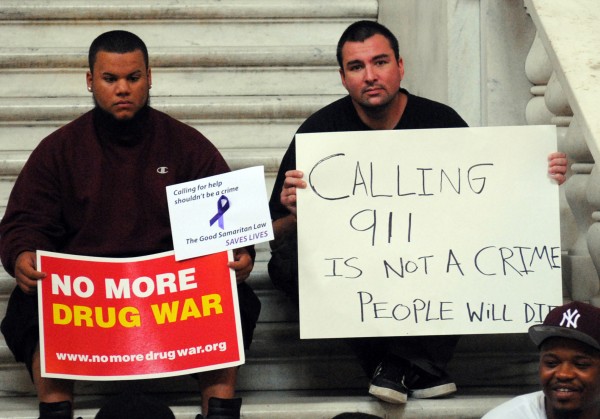
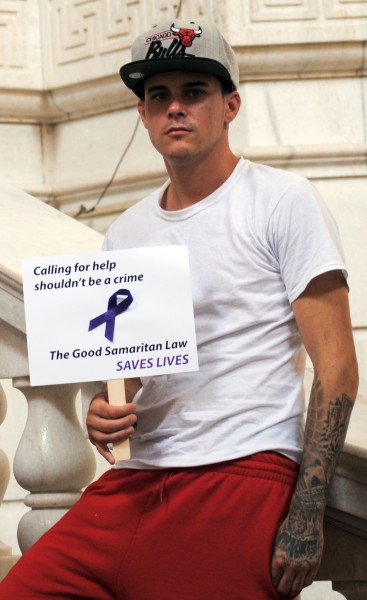
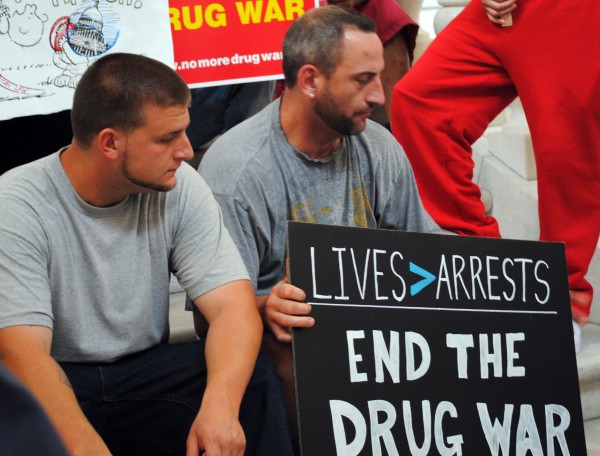
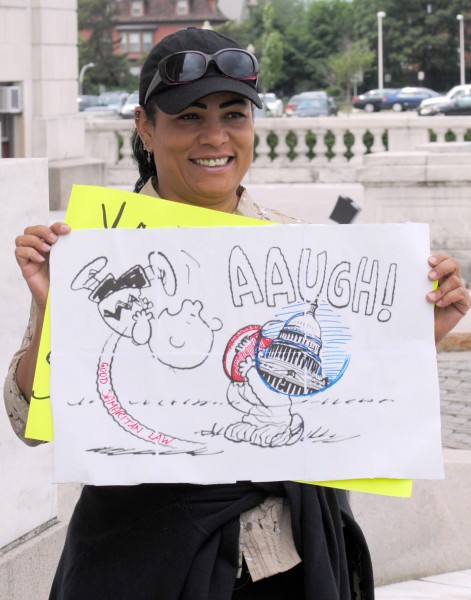
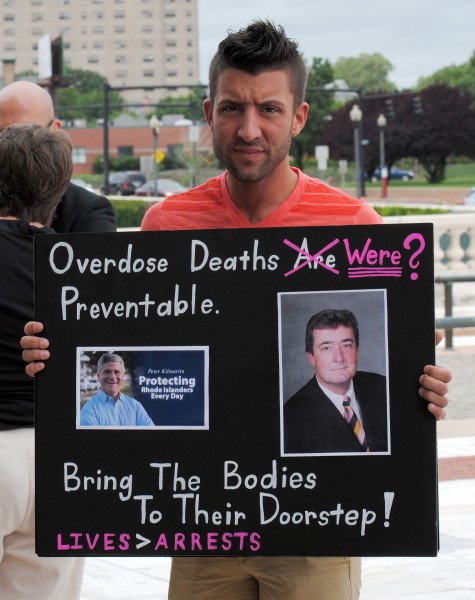
 In 2014, there were at least 216 known deaths from accidental opiates overdose. Rhode Island is in the midst of an epidemic that has been somewhat mitigated by the availability of Narcan, an emergency medication that can keep someone overdosing on opiates alive long enough for them to get to a hospital. Those who have overdosed range in age from 15 to 65 and deaths have occurred in 30 different cities or towns in the state.
In 2014, there were at least 216 known deaths from accidental opiates overdose. Rhode Island is in the midst of an epidemic that has been somewhat mitigated by the availability of Narcan, an emergency medication that can keep someone overdosing on opiates alive long enough for them to get to a hospital. Those who have overdosed range in age from 15 to 65 and deaths have occurred in 30 different cities or towns in the state.
Opiate overdoses don’t discriminate.
RICARES, (Rhode Island Communities for Addiction Recovery Efforts) in an effort to push the General Assembly towards renewing the program that makes Narcan available, staged a “Die-In” outside the State House on the first day of the legislative session yesterday. The activists are also seeking to expand the “Good Samaritan” law so that a person on parole or probation who calls for medical assistance in the event of a friends overdose will not be at risk of going back to prison. Activists are also looking for more funding for addiction recovery programs.
I was fortunate to be able to talk to Janina LeVasseur, a board member at RICARES, about overdoses, Narcan and addiction recovery. All the research and reading I did ahead of this event did not come close to providing me with the insight and understanding I got in this short conversation.
More than 100 people who committed to this action by laying on the ground in the freezing cold and snow demonstrated determination and fortitude. Many were there in memory of a loved one lost to an overdose.
As LeVasseur said in our interview, this is a social justice issue, and one that should be easy for us all to get behind.
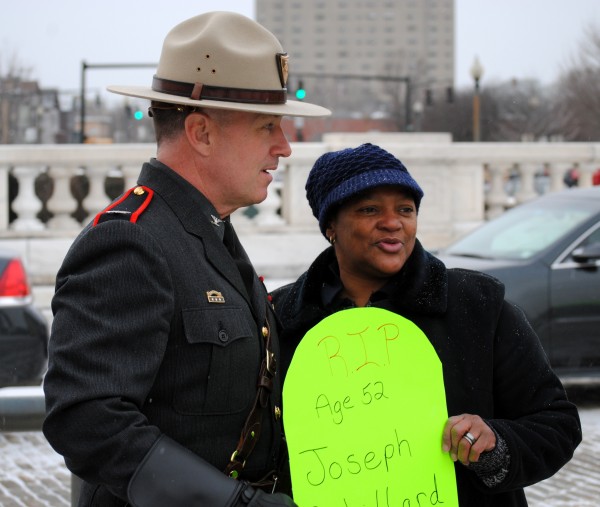
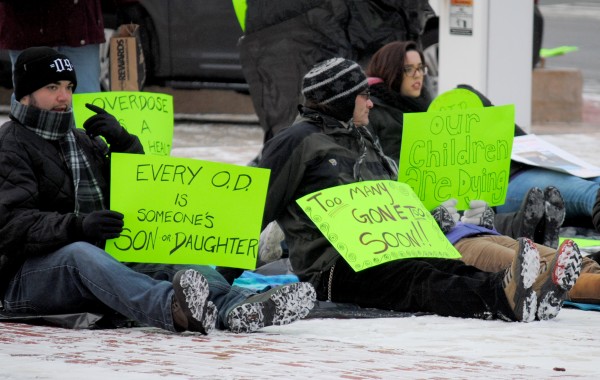
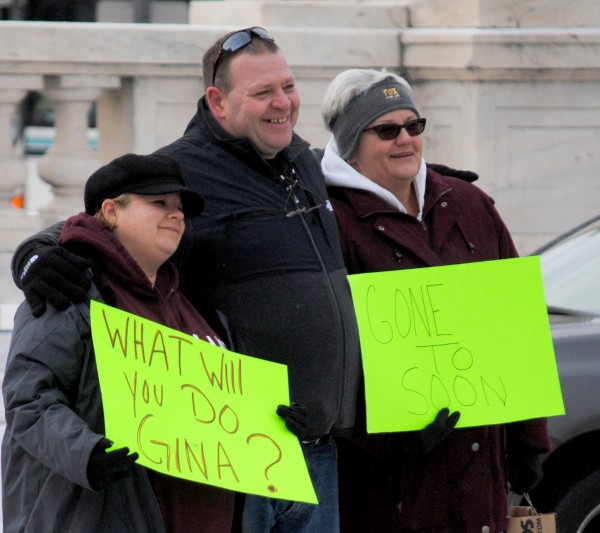
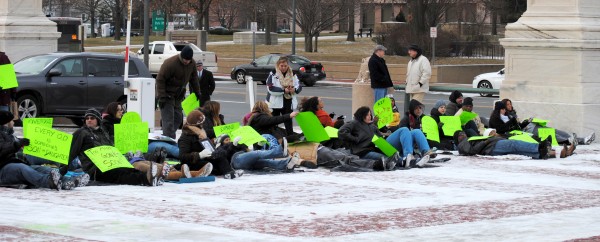
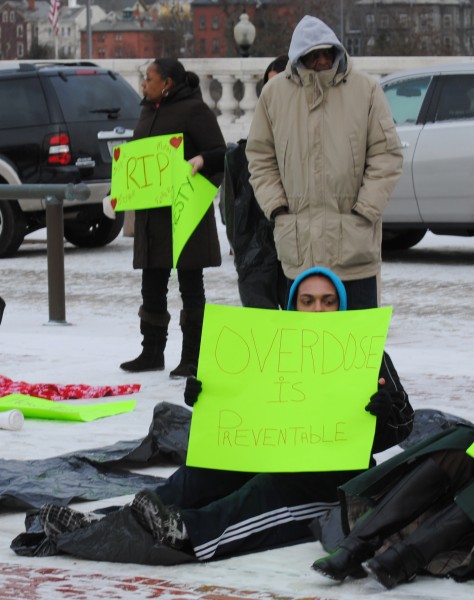
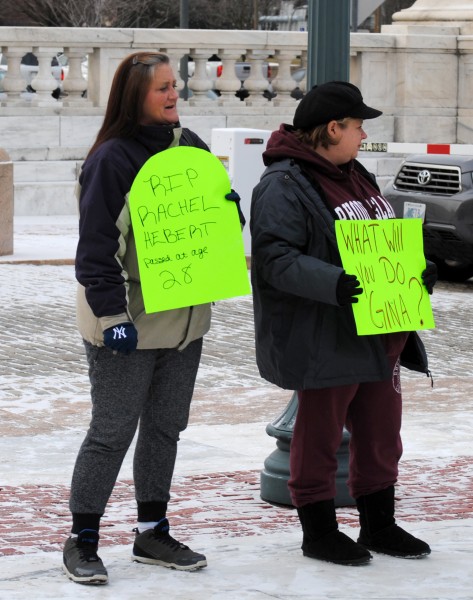
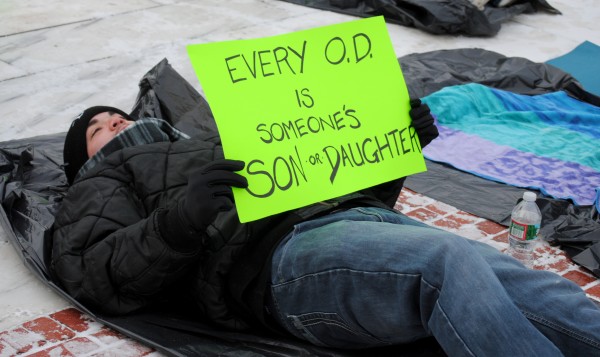
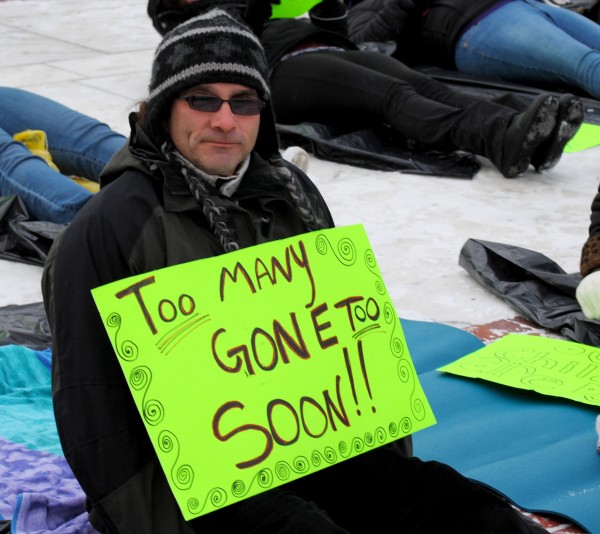
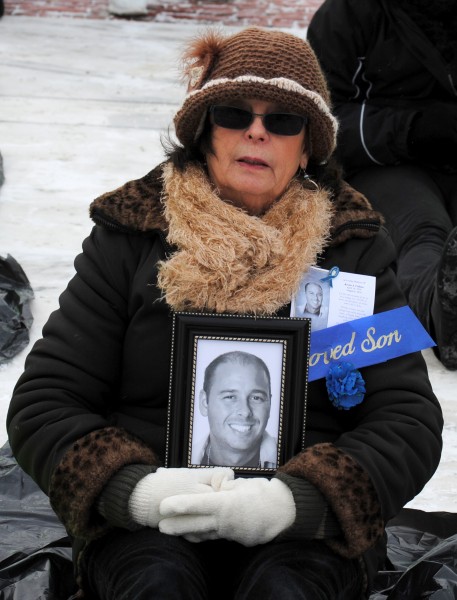
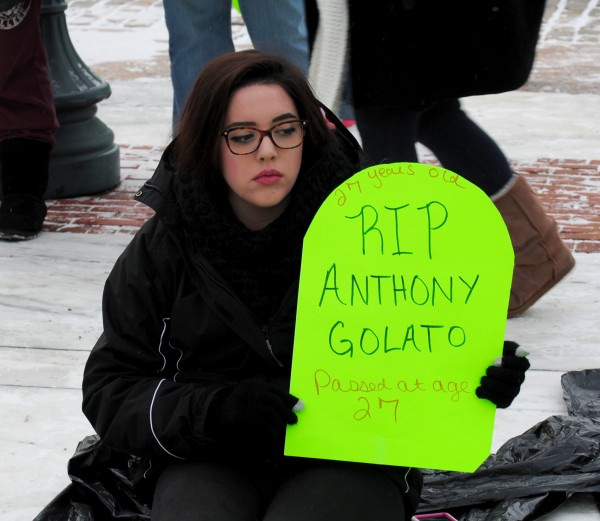
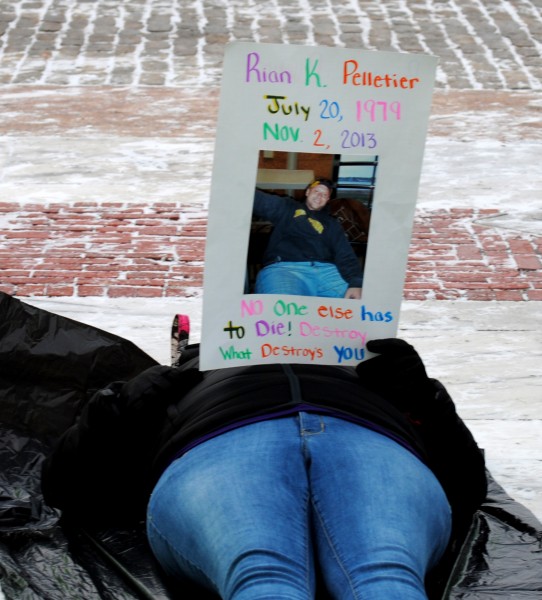
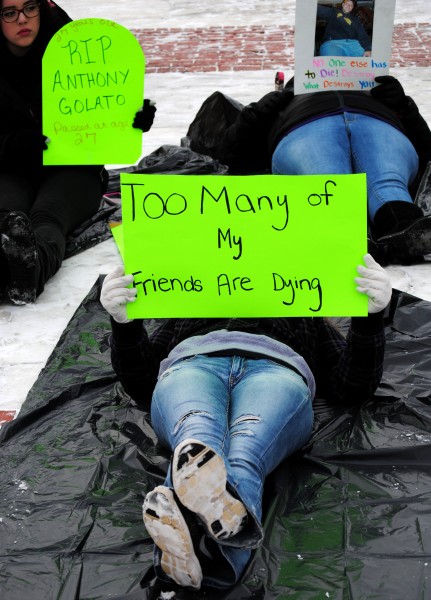
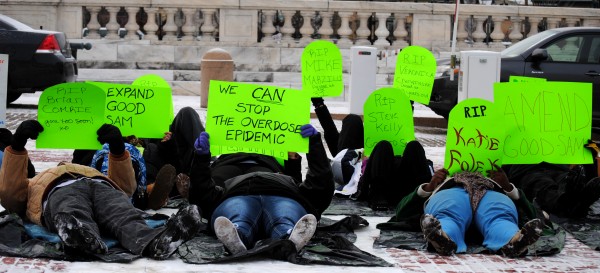

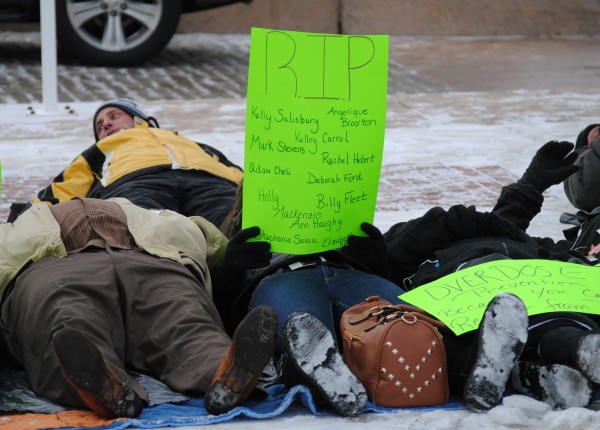
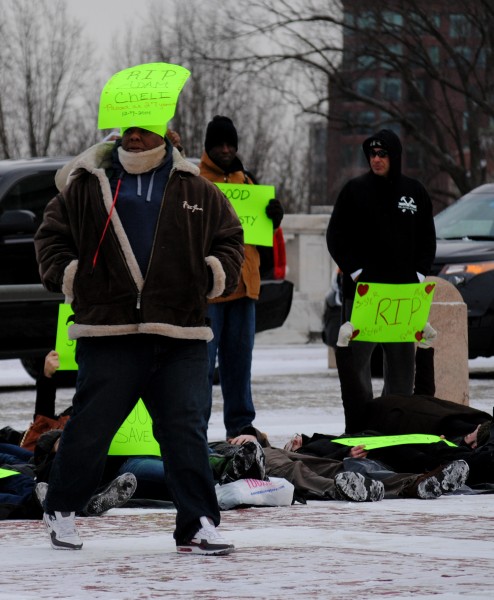
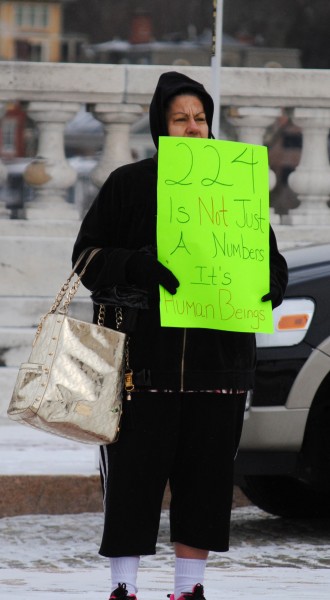
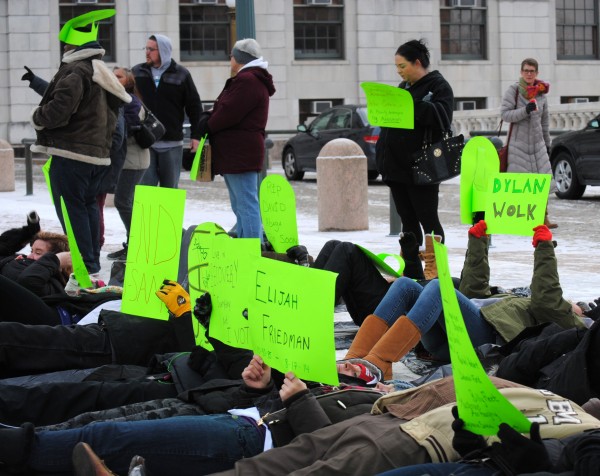
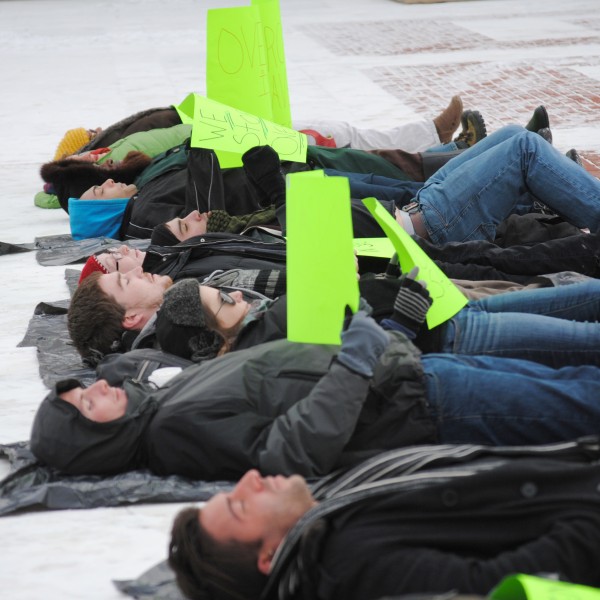
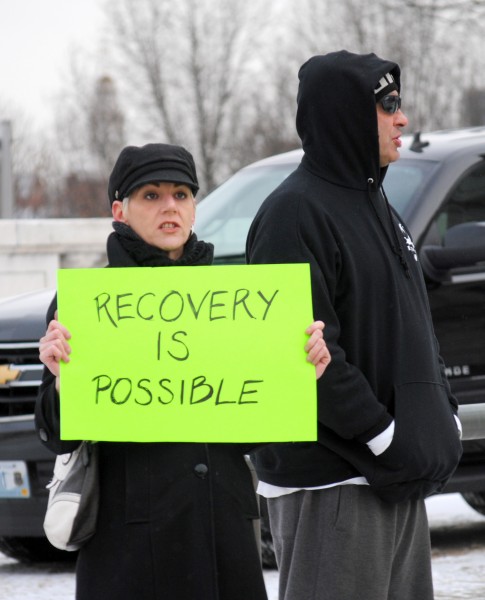
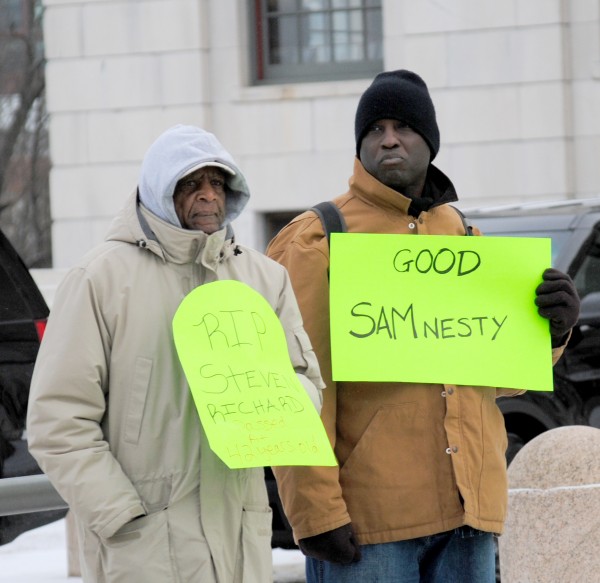
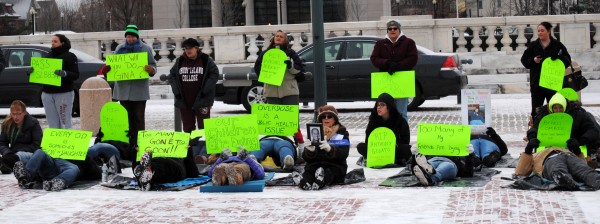
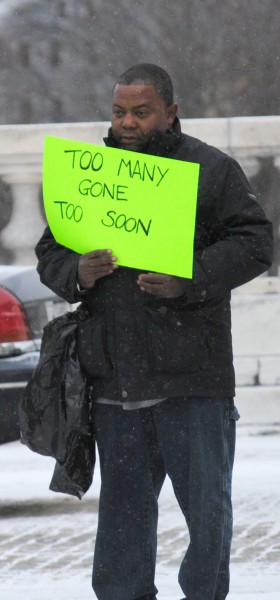

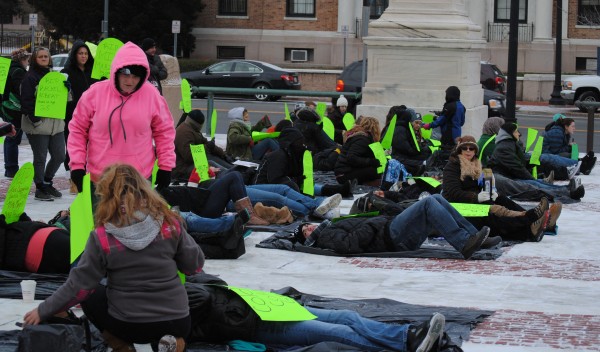
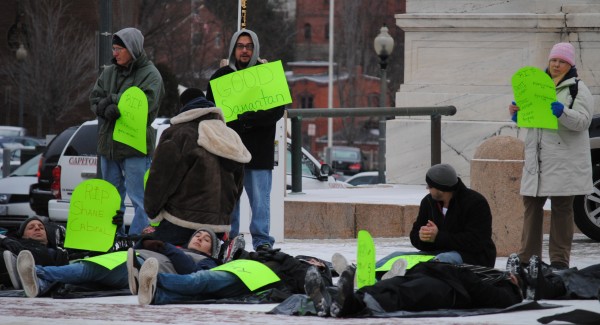
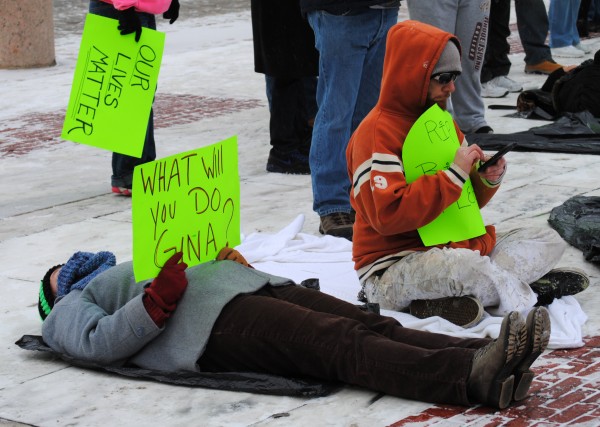
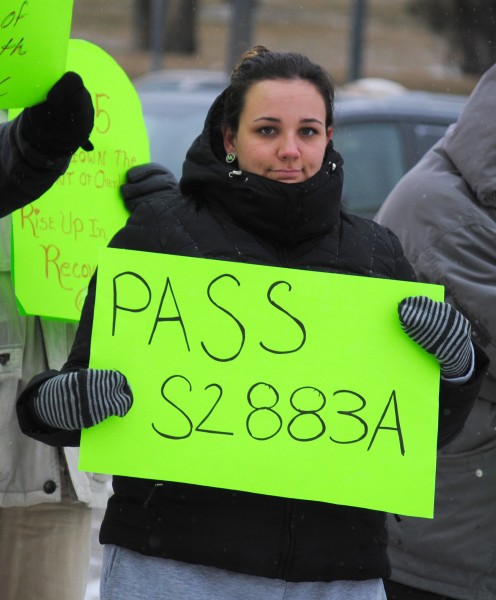
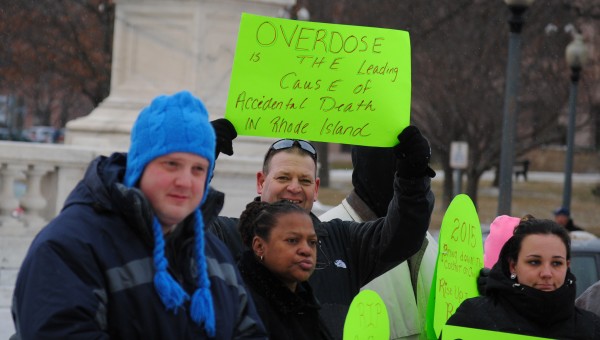
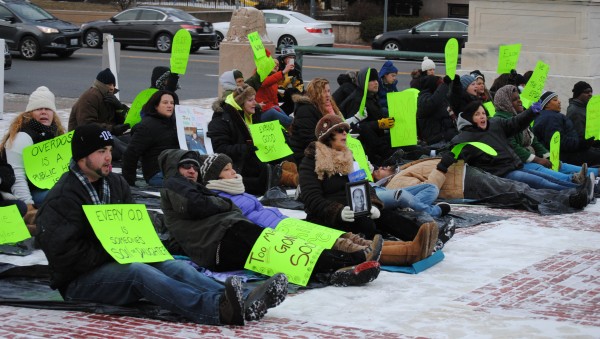
 Rhode Island became the latest state to lessen the punishments for small amounts of marijuana, popularly known as “decriminalizing” it. Six years ago, there were many doubters and few reformers on board. Yet it appears America is fed up with many facets of drug policy. Organizations that have been seen as fringe radicals, such as Direct Action for Rights & Equality (DARE), are seeing their proposals become mainstream positions. This DARE, not to be confused with the other D.A.R.E., has consistently looked to change the misguided (or malicious) attempt to curb drug use through prisons. Once this seemingly impossible reform became inevitable, the members of DARE realized their work was all but done.
Rhode Island became the latest state to lessen the punishments for small amounts of marijuana, popularly known as “decriminalizing” it. Six years ago, there were many doubters and few reformers on board. Yet it appears America is fed up with many facets of drug policy. Organizations that have been seen as fringe radicals, such as Direct Action for Rights & Equality (DARE), are seeing their proposals become mainstream positions. This DARE, not to be confused with the other D.A.R.E., has consistently looked to change the misguided (or malicious) attempt to curb drug use through prisons. Once this seemingly impossible reform became inevitable, the members of DARE realized their work was all but done.
A key element to the new law is that people on probation or parole will not be violated and sent to prison. People without actual experience in the criminal justice realm had to be educated on this element. Cynically enough, those who wanted to pass this measure based on saving money (by less incarceration) had to be shown that most imprisonments are due to such violations. Remarkably, the Attorney General stuck to their story that nobody is sent to prison for marijuana… even as evidence and personal stories came forth.
It is likely that the Dept. of Probation and Parole will develop new guidelines for what to do when someone receives a $150 “pot ticket” (which doubles to $300 after 30 days, and to $600 after 90 days). They will likely need to pay even more to attend a mandatory drug program, and failure to do so will result in a violation. This may ultimately prove challenging for people who are unemployed or barely scraping by, as are many people released from prison.
There should be no surprise that the bulk of marijuana tickets will disproportionately come from highly policed areas, and disproportionately affect People of Color, who represent about two-thirds of Providence. DARE, ACLU, PrYSM, and others have consistently presented evidence of racial profiling in Rhode Island that has a similar ring to the NYPD’s “Stop and Frisk” program that is currently under scrutiny by the Justice Department and Gov. Cuomo. Marijuana decriminalization, however, did not gain momentum due to the disproportionate impact on the 21% of Rhode Island residents who are Black, Latino, or Asian. It passed because 12% of Rhode Islanders are willing to admit they smoke pot. The Providence Journal article poll tallies 29% of people who “already” smoke.
When former RI Republican Minority Leader Bob Watson was arrested in Connecticut last year, just prior to a hearing on this bill, some wondered what would have happened if Watson was pulled over in his hometown of Portsmouth… or if he had been before. Watson’s public defense was that he needed the pot for his ailments, i.e. he needed it to get by. Many of that 12% have said the same. I have never encountered a person who wants their friend or family member to be disabled through drug use of any kind, and so my last words to the legislators on the matter were, “if you caught your son, daughter, or colleague with marijuana, what would you do? Whatever it is, what’s good enough for your son, daughter, or colleague is good enough for the rest of Rhode Island.”
Nobody believed we could eliminate mandatory minimum drug sentences in Rhode Island. But we did. Nobody believed we could pass a law that would nullify a probation violation prison sentence if the new charges were ultimately dismissed. But we did. When we started down this road, few believed Rhode Island was ready to reduce penalties even on marijuana… and now some politicians openly call for regulation and taxation of this plant. The push to create a Study Commission (often the kiss of death) by Senator Josh Miller was crucial. It allowed reports such as the study by Harvard economist Jeffrey Miron to gain prominence and dissemination through Open Doors, a service provider for the formerly incarcerated. The study commission put major advocacy partners on notice, such as Drug Policy Alliance, Marijuana Policy Project, and Law Enforcement Against Prohibition- and let them know that we are making change in this tiny little state.
What is next in drug policy other than pushing for full regulation, and a potenial $300 million in economic impact? It is worth noting that marijuana has been a gateway drug to a criminal record, and once someone is on probation they no longer receive the full protection of the 4th, 5th, and 6th Amendments; they are essentially guilty until proven innocent. For those who want to save dollars and those who want a rational or humane approach to drug policy in Rhode Island, we can look at ways for people to get out of what is one of the most regressive probation schemes in the country. RI is one of the leaders in percentages of people on probation and the lengths of sentences.
One proposal we put forth is limiting the probation violation to the time remaining on probation. Currently, someone with a 10 year suspended sentence can be given that term if violated on the last day of the 10th year. This often violates the statute of limitations, carrying a punishment beyond what is permissible by law. Another proposal is to allow probationers and parolees the ability to earn Good Time credits off their sentences. Ultimately, the only ones who would receive credits are those “doing the right thing,” and it would allow Probation Officers more flexibility in curbing inappropriate behavior, short of incarceration. Another proposal, which gained momentum this year, is a Good Samaritan law that would not punish a drug user who calls 911 to save the life of another. This places a higher priority on life than on imprisoning those who are generally addicted to heroin (the most common form of overdose).
No matter what direction activists and politicians go after this key victory, it appears certain that the public is far ahead of the politicians on this matter. It is high time that harmless behavior be treated as such in the courts. It is also time for us to find medical solutions for health problems such as addiction, rather than putting someone in a cage until later.
Bruce Reilly is a member of DARE, Rhode Island’s only organization committed to (among other things) the development and empowerment of those directly impacted by the criminal justice system. He testified on this bill in both the House and Senate, along with other DARE members, and is a national steering committee member of the Formerly Incarcerated & Convicted People’s Movement. He attends Tulane University Law School, and is currently a legal intern at the Brennan Center for Justice.
]]>